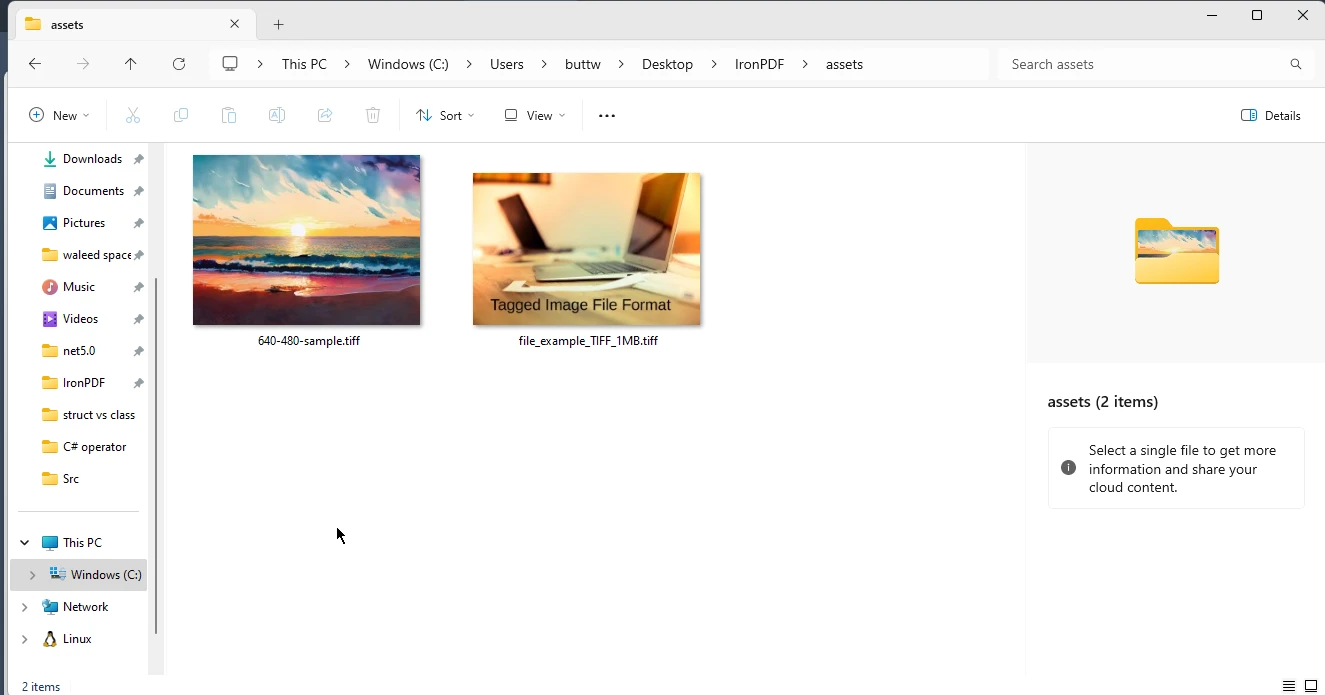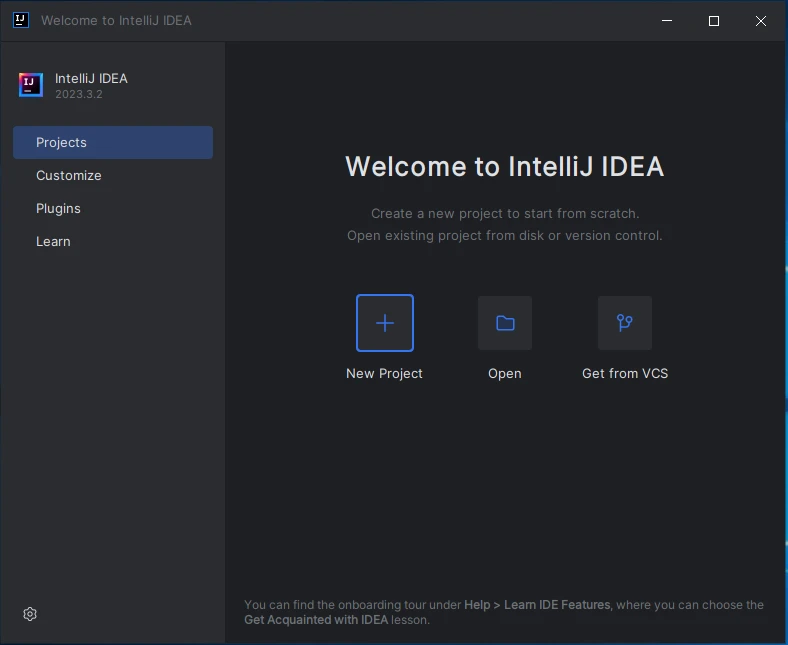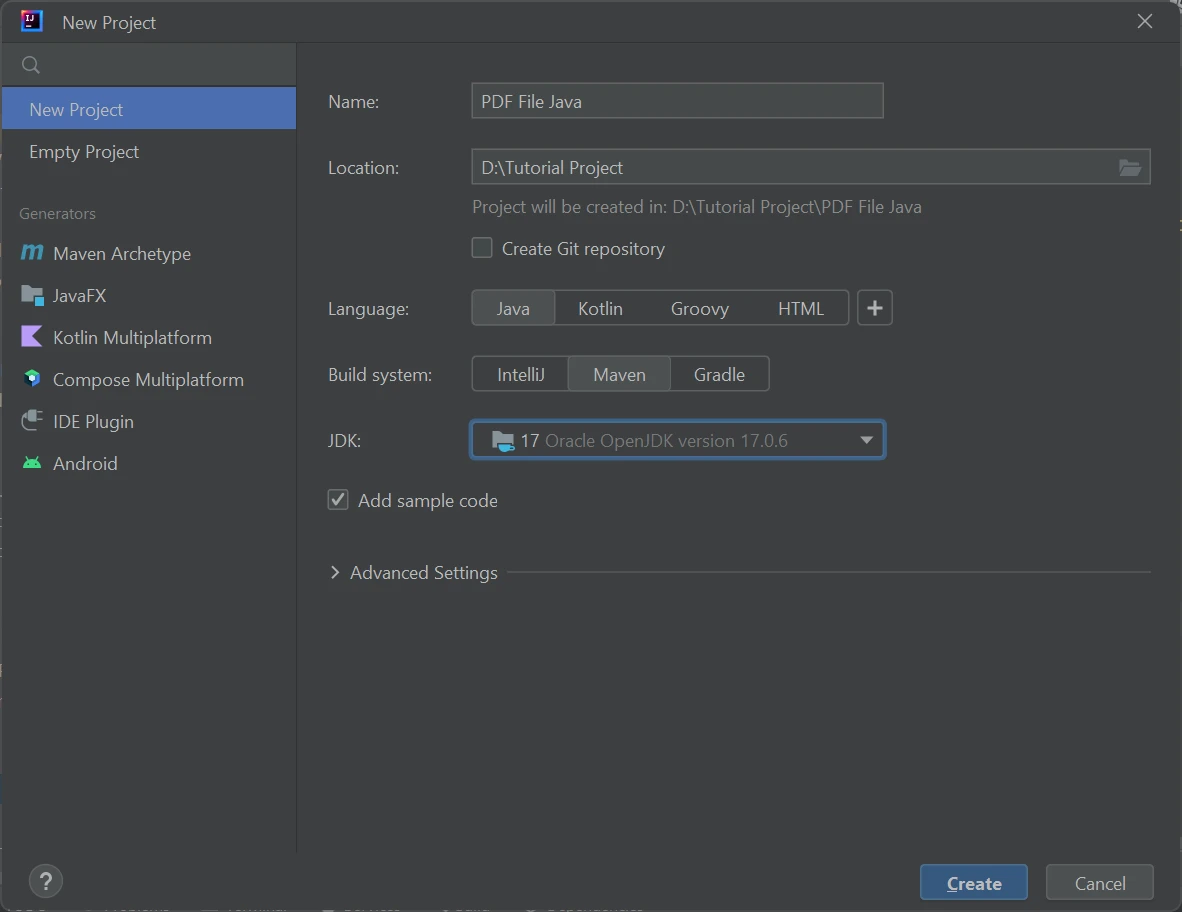How to Convert Word to PDF in Java
This article will dive into the world of Word to PDF conversion using Java, exploring real-life examples and sharing stories from developers who have experienced the benefits of this process firsthand.
IronPDF: Java PDF Library
IronPDF for Java is a powerful library that simplifies working with PDF documents in Java applications, including creating, editing, and extracting content. One of its key features is the ability to convert HTML content to PDF programmatically, which is perfect for the Word to PDF Java conversion process. With IronPDF for Java, developers can leverage the library's capabilities to streamline the conversion of Word documents to PDF in Java.
Step 1: Convert Word document to HTML
The first step in the Word to PDF Java conversion process is transforming a Word document into HTML. This may sound like a daunting task, but fear not! MS Word itself provides a handy feature for doing just that.
To use this feature, simply follow these steps:
Open the Word document you want to convert.
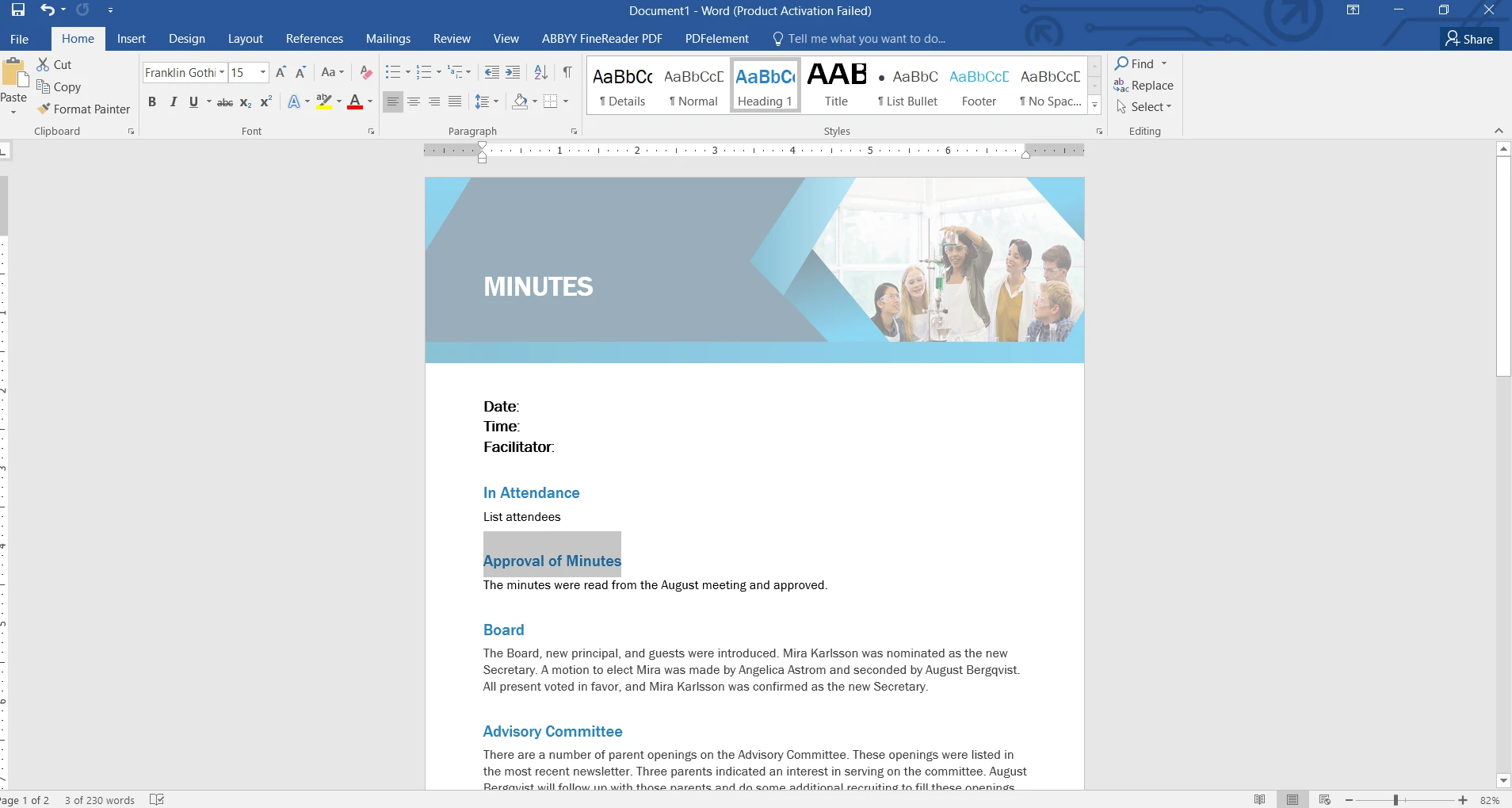 The Word document
The Word document- Click on "File" in the toolbar, and then select "Save As".
- Choose a location to save the HTML file.
In the "Save as type" dropdown, select "Single File Web Page".
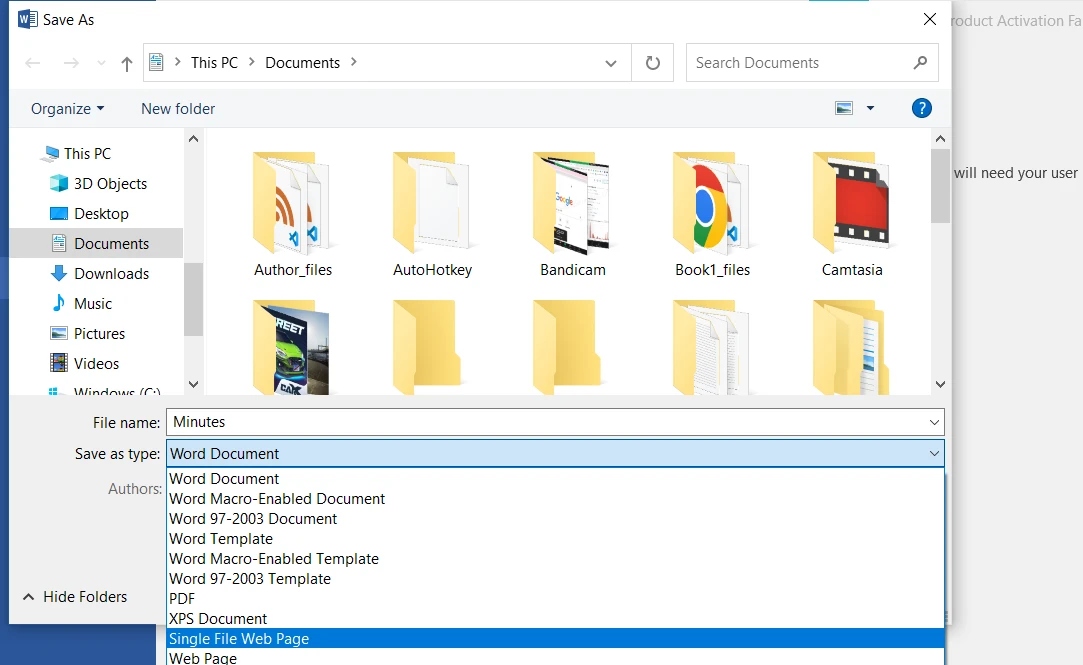 Select an option to save as an HTML file
Select an option to save as an HTML file- Click "Save".
Your Word document has been converted to HTML. Now, it's time to move on to the next step of the process.
Step 2: Convert HTML to PDF with IronPDF for Java
Now that you have an HTML version of your Word document, it's time to use IronPDF for Java to convert it into a PDF. IronPDF for Java is a powerful library that makes it easy for developers to create, edit, and extract content from PDF documents. One of its key features is the ability to convert HTML to PDF, making it the perfect choice for this Word to PDF Java conversion process.
Add IronPDF in Maven Project
To include IronPDF in your Maven project, follow these simple steps:
Add the IronPDF Dependency to your pom.xml File
Open your pom.xml file and locate the dependencies section. If it's not present, create one. Add the following dependencies for IronPDF and the slf4j logger, which IronPDF uses for logging:
<dependencies>
<dependency>
<groupId>com.ironsoftware</groupId>
<artifactId>ironpdf</artifactId>
<version>VERSION_NUMBER</version>
</dependency>
<dependency>
<groupId>org.slf4j</groupId>
<artifactId>slf4j-simple</artifactId>
<version>VERSION_NUMBER</version>
</dependency>
</dependencies><dependencies>
<dependency>
<groupId>com.ironsoftware</groupId>
<artifactId>ironpdf</artifactId>
<version>VERSION_NUMBER</version>
</dependency>
<dependency>
<groupId>org.slf4j</groupId>
<artifactId>slf4j-simple</artifactId>
<version>VERSION_NUMBER</version>
</dependency>
</dependencies>Update your Maven Project
After adding the dependencies to your pom.xml file, save it and update your Maven project. This can be done using your IDE or by running the following command in the terminal:
mvn clean installmvn clean installThis command will download the specified IronPDF and slf4j-simple libraries and make them available for your project.
Code for converting HTML to PDF document
Below is a detailed explanation and code for converting an HTML file to a PDF using the IronPDF for Java library.
import com.ironsoftware.ironpdf.*; // Import classes from IronPDF for Java library
import java.io.IOException;
import java.nio.file.Paths;
public class HtmlToPdfConverter {
public static void main(String[] args) {
// Apply your IronPDF license key
License.setLicenseKey("YOUR-LICENSE-KEY");
// Set a log path for debugging and monitoring
Settings.setLogPath(Paths.get("C:/tmp/IronPdfEngine.log"));
try {
// Render the HTML file as a PDF
PdfDocument myPdf = PdfDocument.renderHtmlFileAsPdf("wordHTML.html");
// Save the PdfDocument to a file
myPdf.saveAs(Paths.get("wordToPdf.pdf"));
} catch (IOException e) {
e.printStackTrace(); // Handle potential IO exceptions
}
}
}import com.ironsoftware.ironpdf.*; // Import classes from IronPDF for Java library
import java.io.IOException;
import java.nio.file.Paths;
public class HtmlToPdfConverter {
public static void main(String[] args) {
// Apply your IronPDF license key
License.setLicenseKey("YOUR-LICENSE-KEY");
// Set a log path for debugging and monitoring
Settings.setLogPath(Paths.get("C:/tmp/IronPdfEngine.log"));
try {
// Render the HTML file as a PDF
PdfDocument myPdf = PdfDocument.renderHtmlFileAsPdf("wordHTML.html");
// Save the PdfDocument to a file
myPdf.saveAs(Paths.get("wordToPdf.pdf"));
} catch (IOException e) {
e.printStackTrace(); // Handle potential IO exceptions
}
}
}In this code snippet:
- License Key: A license key for IronPDF is set to enable the features of the library.
- Log Path: A log path is specified for the library to store logs useful for debugging.
- Render HTML as PDF: The HTML content of the file
wordHTML.htmlis rendered as a PDF, creating aPdfDocumentobject namedmyPdf. - Save PDF: The generated PDF is saved to the specified location as
wordToPdf.pdf.
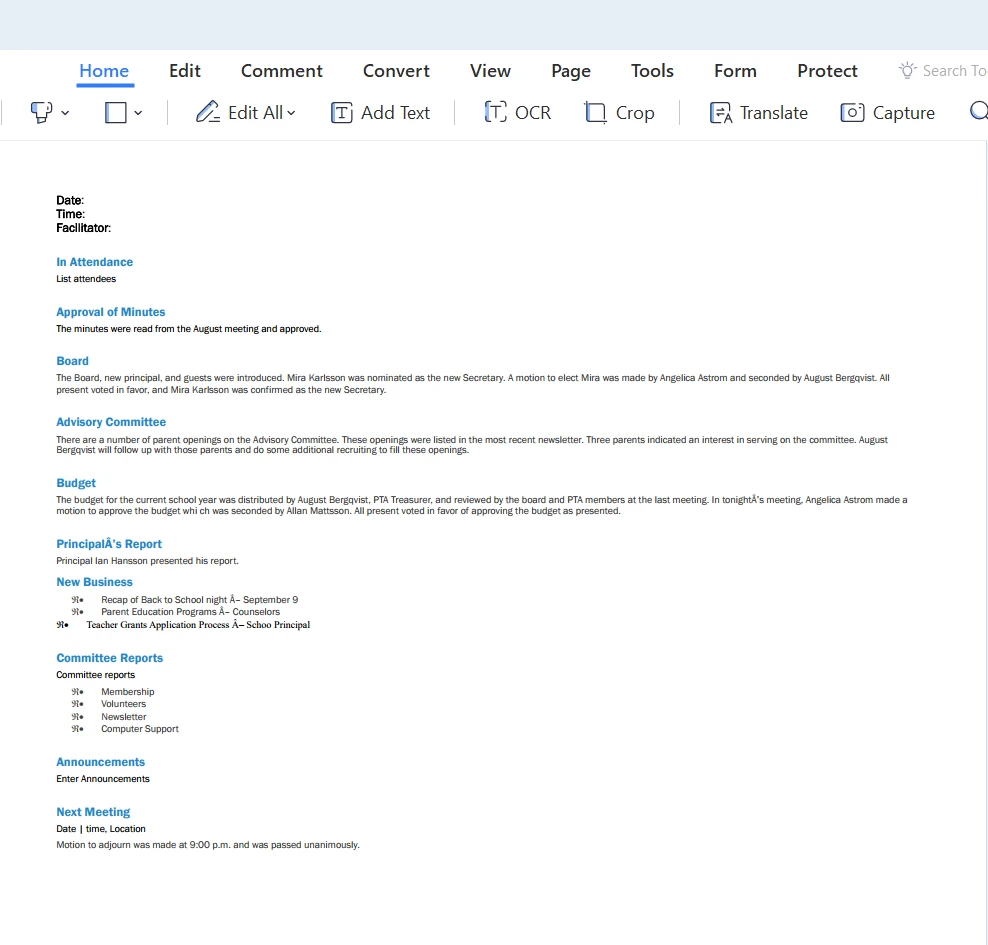 The output PDF file
The output PDF file
Scenario in which We Need to Convert Word to PDF
A Legal Document Management System
A law firm requires a document management system that can convert Word documents containing contracts and legal agreements into PDF format. This system needs to ensure the formatting is preserved, and the final PDF documents are secure and easy to share with clients.
By implementing a Word to PDF Java conversion process with IronPDF for Java, the law firm can easily and accurately convert their Word documents into PDF files, streamlining their document management process.
Conclusion
In conclusion, the Word to PDF Java conversion process, leveraging the IronPDF for Java library, offers a versatile and efficient solution for developers and businesses to handle document management tasks. With its user-friendly approach, IronPDF provides a seamless method to convert Word documents to PDF files, ensuring consistent formatting, enhanced document security, and professional printing quality with IronPDF for Java.
In addition, IronPDF offers the abilities to add headers and footers in PDF documents, create tables using IronPDF for Java, and implement digital signatures in PDFs.
To give potential users a taste of its capabilities, IronPDF for Java offers a free trial for new users. Licensing options for different needs begin at $799.
Frequently Asked Questions
How can I convert a Word document to PDF using Java?
To convert a Word document to PDF in Java, you first convert the Word document to HTML and then use IronPDF's Java library to transform the HTML into a PDF. This is done by rendering the HTML as a PDF and saving it using IronPDF.
What are the steps to convert a Word document to HTML for PDF conversion?
To convert a Word document to HTML, open the Word document, click 'File', select 'Save As', choose a location, and select 'Single File Web Page' in the 'Save as type' dropdown. This HTML file can then be converted to PDF using IronPDF for Java.
How do I integrate a PDF library into a Maven project?
To integrate IronPDF into a Maven project, add the IronPDF dependency to your project's pom.xml file's dependencies section. After saving the changes, update your Maven project to download and use the specified libraries.
What are the benefits of converting Word documents to PDF in a legal document management system?
Converting Word documents to PDF is beneficial in a legal document management system because it ensures that the document's formatting is preserved, enhances security, and facilitates easy sharing, which is essential for legal documents such as agreements and contracts.
What are the additional features of this Java PDF library?
IronPDF for Java provides features such as adding headers and footers, creating tables, applying digital signatures, enhancing document security, and ensuring professional printing quality for your PDFs.
Is there a trial period available for this Java PDF library?
Yes, IronPDF for Java offers a free trial that allows users to explore the library's capabilities before deciding to purchase a license.
How can I set a license key for this Java PDF library?
You can set a license key in your Java code to unlock the full features of IronPDF. This is done by using the appropriate method to input the license key provided upon purchase.
What logging options are available for this Java PDF library?
IronPDF for Java allows you to specify a log path where logs can be stored, which is useful for debugging and monitoring the library's operations within your applications.
What considerations should be made when converting HTML to PDF?
When converting HTML to PDF using IronPDF for Java, ensure that the HTML maintains the necessary formatting and structure for accurate rendering. You should also consider setting up the license and log path for optimal functionality.


